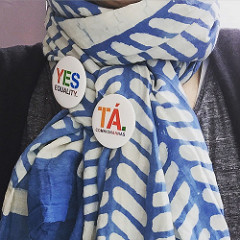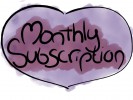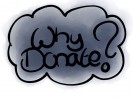CN: homophobia, physical violence and threats of violence.
Do you know what does my head in?
This idea of homophobia: it’s something special. In this view- which I’m going to call Capital H, for reasons which will make perfect sense in a moment- people who do homophobic things are called homophobes, and they are the worst.
Think of a homophobe, and what do you see in your mind’s eye? Something like this, maybe:
That guy: the worst.
What else might you picture? Maybe parents who kick their queer kids out of home, say. People who shout homophobic things at people who look gay on the street. Bakers who refuse to make cakes for same-sex weddings. Perhaps.
Let’s be clear: those people are grade-A, Capital-H Homophobes. But what about the rest of us? I’ll bet you don’t hate LGBTQIA people. You probably have queer friends or love Orange Is The New Black. If you got the chance, I’ll bet you even voted for marriage equality in your state or your country. You might even have been to a few Pride marches. You’re not A Homophobe. That’s the issue with the Capital-H idea of homophobia. It makes homophobia a terrible thing that only Homophobes do. Homophobes are monsters. You’re not a monster, are you?
There’s a few problems with Capital-H. The first, of course, is something that most queer people understand very well: it’s wrong. If all homophobia were perpetrated by Homophobes, life for queer people would be far, far easier. Unfortunately for us, the vast majority of homophobia isn’t perpetrated by people who actively hate us. It’s far more insidious than that- but more on that later. For now, let’s remember that people who love us mess up all the time. It’s something we grow to expect.
Capital-H lets most homophobic acts off the hook. It makes it incredibly difficult to challenge homophobia in our everyday lives. When someone who loves us makes an assumption about us because of our orientations, or slips up accidentally, it’s very hard to call them up on it. You see, pointing out that someone did something homophobic (or a racist, misogynist, etc) sounds very much like you’re calling them A Homophobe. A monster. It’s difficult for you to say, because you’re worried about how they’ll take it and you don’t want to make a big deal out of something small. It’s just as hard for them to hear- particularly without getting defensive or upset. More often than not, the queer person ends up comforting the person who’s just done or said something homophobic. Everyone feels awful.
Capital-H also erases internalised homophobia. LGBTQIA people grow up and live in the same culture that cishet people do. We internalise the same biases as everyone else. But if homophobia is something that Homophobes do, how do we challenge those assumptions within ourselves?
It’s a little peculiar, isn’t it, that seeing homophobia as The Worst Thing makes it so much harder to challenge? But it does. Capital-H, by erasing everyday homophobia carried out by decent people, actively perpetuates a status quo where cisgender heterosexuality is normalised and everything else is.. Other.
I Voted Yes, But..
It’s the I’m Not A Racist Butt of queerness in 2016 Ireland. A few weeks ago on the bus home, I spent a half hour sitting in front of a pair of Voted Yes Butts. He Voted Yes, But he just doesn’t see how it’s okay for two men to raise kids. She Voted Yes, but yeah, I mean, it’s not like they’d always do anything, but… would you want to risk that? He Voted Yes, But he swears, if that guy with a crush on him so much as touches him he’s going to punch his lights out. She Voted Yes, but it’s people like that who give them a bad name.
A couple of weeks ago, a woman walking down a street in Dublin was punched five times in the face by a man as he shouted that he “Voted Yes, But he didn’t vote for that”.
The Voted Yes Butt is what happens when a society perpetuates Capital-H definitions of homophobia. None of those people consider themselves homophobes. I’ll bet those two behind me on the bus have a ton of queer friends.
But they do think homophobic things. And they do perpetuate homophobia.
Changing the Focus
Capital-H focuses solely on the homophobe as the source of homophobia. It more or less ignores queer people. We’re the victims of Terrible Homophobes. Sometimes our part of the story involves clever responses to homophobia. Sometimes a cishet saviour comes galloping in to save the day. We’re rarely the protagonists, and we rarely face boring homophobia.
Let’s alter our framing.
Everything changes if we focus on queer people. Homophobia, then, is this: anything that causes queer people to be treated as less than straight people because of our queerness. It’s not limited to legal or institutional discrimination. It’s not just carried out by people who actively hate us. Most homophobia is everyday and it can be mind-numbingly ordinary. It’s in our own actions as well as everyone else’s. Playing the pronoun game. That hesitation on someone’s face when you don’t. Assumptions about what you like, who you are, what you do- the kind that feel positive at first glance as well as the kind that are obviously negative.
And it’s things that might not have anything to do with us. Queerness as a threat: if you keep doing that, everyone’ll think you’re one of Them.
This leads to another thing you realise when you look at homophobia from a queer’s-eye view: it often has as much to do with how we look and act as who we sleep with. Most of the overt homophobia I’ve dealt with has happened when my gender expression fell further outside the norm. People whose gender expressions are closer to what’s expected tend to face erasure, or else they’re held up as one of the ‘good’ or ‘normal’ ones-always knowing that that pedestal is one slip away from collapsing.
As someone who’s almost always gendered as a woman, I have a certain leeway in this one: femmephobia combines with that gender policing to throw another spanner into the works. If you’re gendered as a woman, then you’re always going to balance on a seesaw of femmephobia versus gender policing: if you win on one side, you lose out on the other. For people gendered as men, on the other hand? It’s more like a waterfall. Or a sinkhole. Or quicksand.
Homophobia is about devaluing queerness and queer experiences. Gender policing? Is the punishments society metes out if we don’t acceptably perform our expected gender. And femmephobia associates femininity with frivolity, overwrought emotion (“hysteria”) and weakness.
Revealing what Matters


If we see homophobia from a queers-eye view, and understand that it is always bound up with femmephobia and gender policing? Small incidents start to matter. Indirect homophobia that targets out gender expression matters. These become the visible signs of something that is largely invisible: the hundreds of unconscious assumptions that we all carry with us, that spread through our society, and that we pass on to others.
In Panti Bliss’s incredible Noble Call speech (watch the whole thing, if you haven’t seen it. Watch it now), she says:
I have been lectured by heterosexual people about what homophobia is and who should be allowed identify it. Straight people – ministers, senators, lawyers, journalists – have lined up to tell me what homophobia is and what I am allowed to feel oppressed by. People who have never experienced homophobia in their lives, people who have never checked themselves at a pedestrian crossing, have told me that unless I am being thrown in prison or herded onto a cattle train, then it is not homophobia.
And that feels oppressive.
So now Irish gay people find ourselves in a ludicrous situation where not only are we not allowed to say publicly what we feel oppressed by, we are not even allowed to think it because our definition has been disallowed by our betters.
And for the last three weeks I have been denounced from the floor of parliament to newspaper columns to the seething morass of internet commentary for “hate speech” because I dared to use the word “homophobia”. And a jumped-up queer like me should know that the word “homophobia” is no longer available to gay people. Which is a spectacular and neat Orwellian trick because now it turns out that gay people are not the victims of homophobia – homophobes are.
Being told that you did something homophobic is not being a victim of homophobia. It’s not even the same as “being accused of being A Homophobe”. This matters. Queer people need to be able to name incidents of homophobia for what they are. Everyone- cishet and queer- needs to learn to hear the words “that thing you did was homophobic” without feeling like they’ve been accused of being a Westboro Baptist. We’ve got to internalise the fact that being anti-homophobia isn’t the same as not being homophobic.
Even bloggers have to pay the bills! Monthly subscriptions- no matter how small- help give me the security to devote time to this place and keep a roof over my head. If you like what you read, please do help out:







Eeeee, I’m not the only one who uses “Butt” in the same context (“Pro-Choice Butt” is my fav)
You know, until I wrote this post it hadn’t even occurred to me that the I’m Not A Racist Butt was one inappropriately-placed arse of many.
It’s a nasty sort of weaponising of those cries against “political correctness”.
Every time your slip-up or poor choice of phrase is pointed out to you, turn it from a useful learning/teaching opportunity into a slight against your very person.
Every time you carelessly hurt a queer person or shore-up damaging stereotypes, ensure the focus is on your pure intentions. Point out how the injured person has really, really hurt you. You’re such a good ally, you know?
Beautiful, and so important. We go to panels and we listen to talks and we nod along at how wicked those Homophobes are, but we never stop to look at the homophobia in our own lives, and how it can be just as bad.
If we say that we do not have any homophobia, we are deceiving ourselves and we’re not being truthful to ourselves.
[…] Homophobia: letting go of the Capital H. […]
I despise this phenomena. Cis people who try to define what counts as transphobic. Hetero people trying to decide what counts as homophobic. Men claiming they get to decide what is or isn’t sexist. White people implicitly claiming they are the arbiters of what counts as racist. And so often, when you call them out, people rally to their defense, rather than the side of the people who are the victims of bigotry.
Get’s on my damned nerves.
That Noble Call speech is wonderful, and in one part Panti herself admits that she is homophobic! If Rory O’Neill, well known drag queen, can get on stage and admit to being homophobic, I think cishet people can learn to do it too.